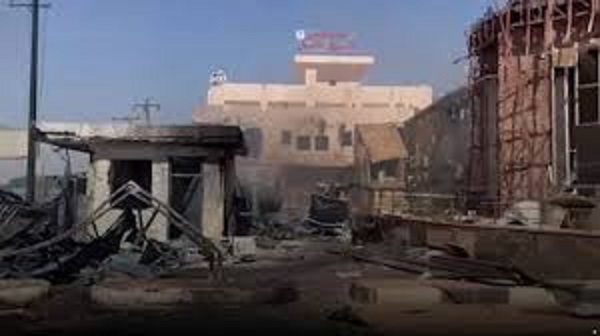After failing to uphold ceasefire negotiations and ease the humanitarian crisis, which has made the situation worse by US sanctions, the rival parties in the war region of Sudan have engaged in fighting in the capital through the night which persisted till the next day, Friday morning.
There are no indications that the militant enemy has evacuated the city’s streets or the homes it has taken over, according to residents of Khartoum and the nearby town of Omdurman, who claim that the army has resumed air operations and is using more artillery as the fighting continues.
read more: Sudan: Rival groups sign an agreement but failed to ceasefire
“This war has caused us a great deal of suffering. There have been violent sounds heard since this morning. We are surrounded by terror. Shehab al-Din Abdalrahman, 31, from the capital’s southern region, described the situation as “a real nightmare.”
A portion of central Khartoum has been destroyed by seven weeks of fighting between the army and the Rapid Support Forces (RSF), which has also destabilized the surrounding area and uprooted 1.2 million people inside Sudan and another 400,000 to neighboring nations.
After an attempt to broker a ceasefire failed, the United States and Saudi Arabia suspended negotiations and forbade the parties from conducting airstrikes and military operations, as well as occupying buildings such as homes, businesses, and hospitals.
A senior US official claims that Washington sanctioned companies owned by the military and the RSF and threatened further action if the parties persisted in destroying their own nation.
Mohamed Abdallah Idris, Sudan’s ambassador to Washington, stated that the government and army are fully committed to the ceasefire agreement and that any sanctions should be used against the party that does not uphold its obligations.
Both parties have accused one another of breaking the ceasefire.
A ruling council led by army chief Abdel Fattah al-Burhan and RSF chief Mohamed Hamdan Dagalo, also known as Hemedti, has been in charge of the Sudanese government since the overthrow of the country’s longtime leader Omar al-Bashir in 2019.
Burhan claimed that after the conflict broke out on April 15, Hemedti had been expelled from the council and all military-friendly government agencies.
The change occurs as a result of the truce agreement made between the army of Sudan and the paramilitary RSF last month. On May 20, the Saudi Arabian and American governments successfully mediated a cease-fire between the two sides.
They’ve broken it numerous times since then, though.
The Sudanese army stopped taking part in the talks being supported by Saudi Arabia with the RSF to put an end to months of fighting on Wednesday.
Fighting persisted in the African nation despite efforts to bring about peace, with the army and the RSF trading accusations over truce violations.













